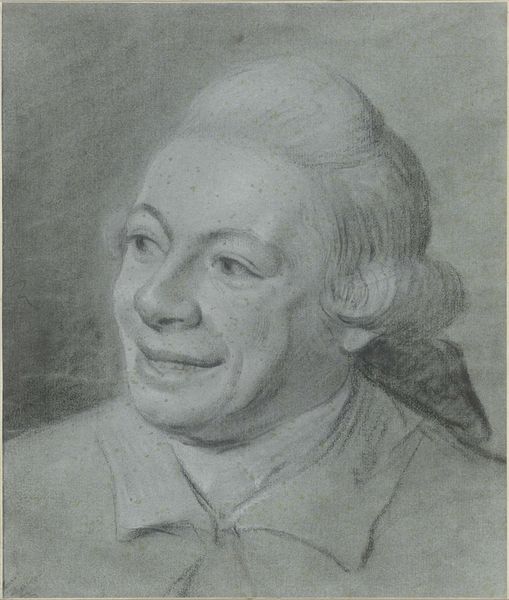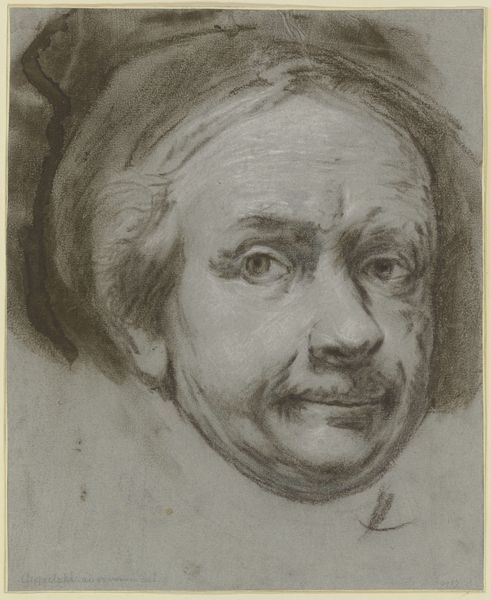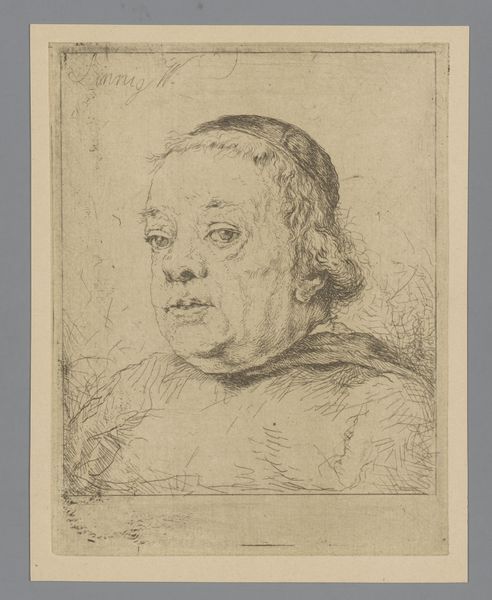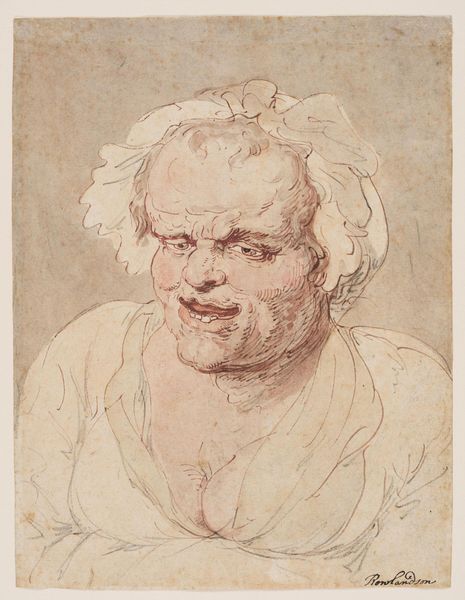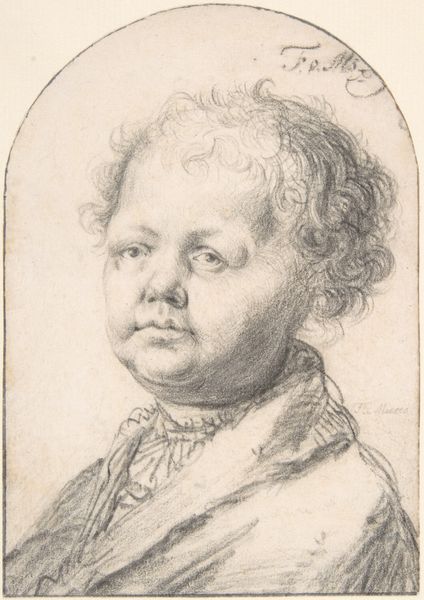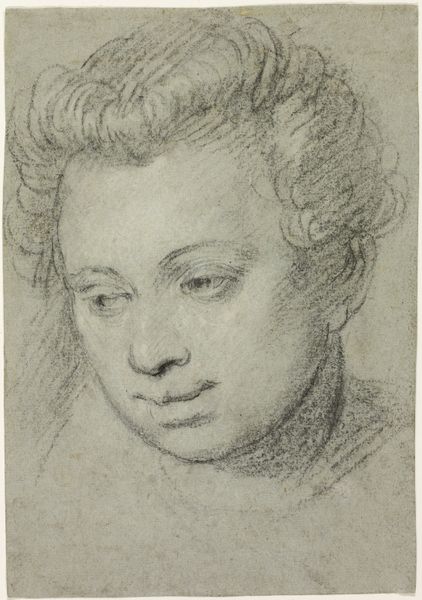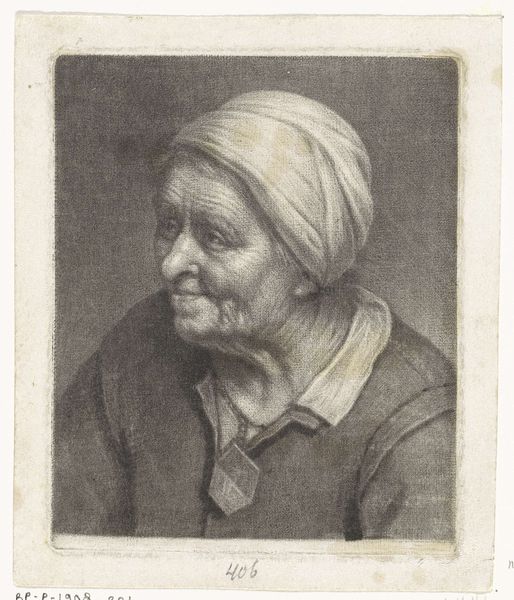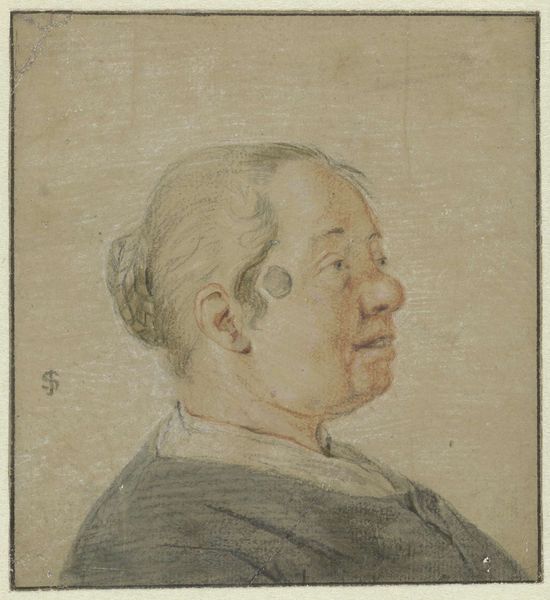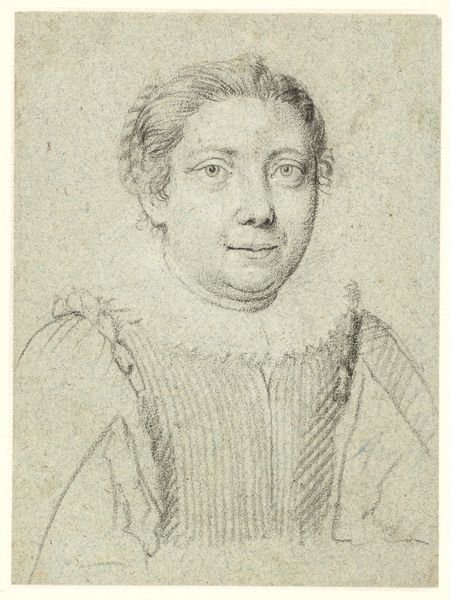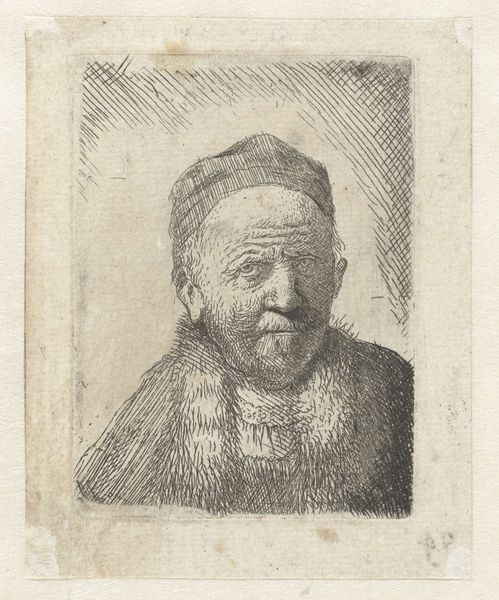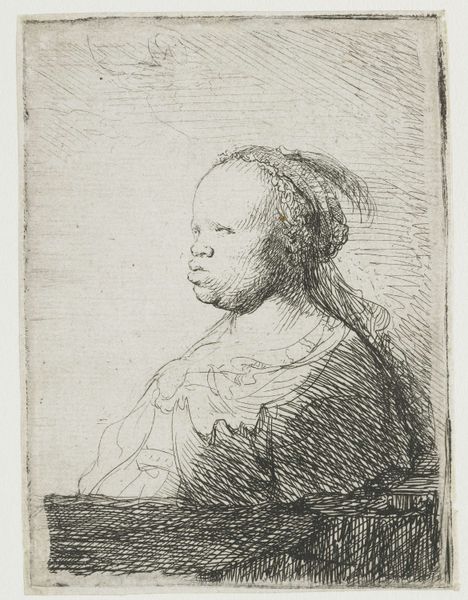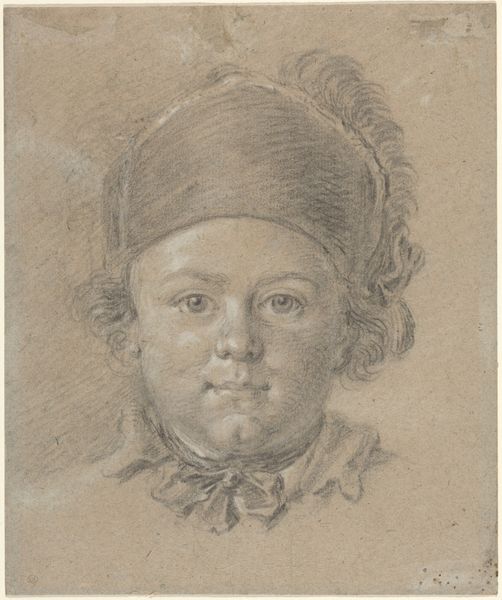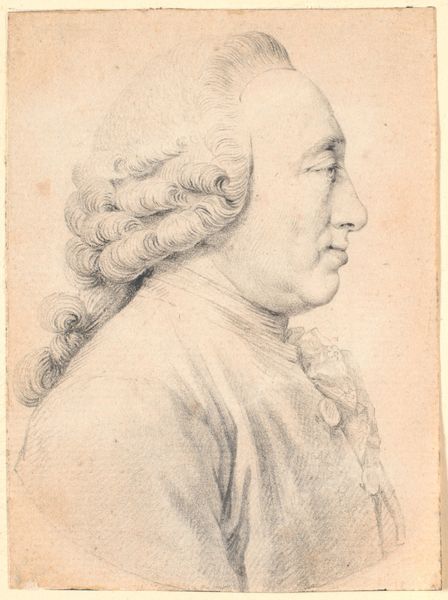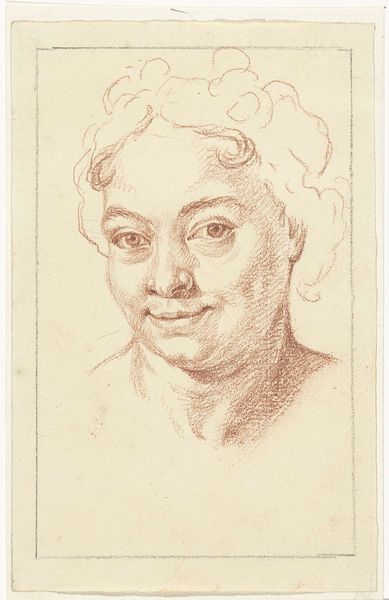
drawing, pen
#
portrait
#
drawing
#
baroque
#
dutch-golden-age
#
charcoal drawing
#
pen
#
portrait drawing
#
portrait art
Dimensions: height 113 mm, width 90 mm
Copyright: Rijks Museum: Open Domain
Cornelis Dusart rendered this portrait, "Head of a Woman, Three-Quarters to the Left," with colored chalk. The subject's head covering is a symbol that has deep roots in European culture. Throughout history, head coverings have signified modesty, piety, and social status, evolving from simple veils to elaborate headpieces. The practice, ubiquitous in ancient Greece and Rome, denoted respectability and marital status for women. We see echoes of this in Byzantine mosaics, where the Virgin Mary is perpetually veiled, a potent symbol of purity and divine grace. Consider how the meaning of head coverings shifted during the Reformation, becoming less about religious devotion and more about secular identity. What might have been an expression of piety in one era transforms into a marker of social identity in another, revealing our collective, perhaps subconscious, longing for order and meaning. It's this cyclical dance of symbols that engages viewers on a profound level, echoing through generations.
Comments
No comments
Be the first to comment and join the conversation on the ultimate creative platform.
